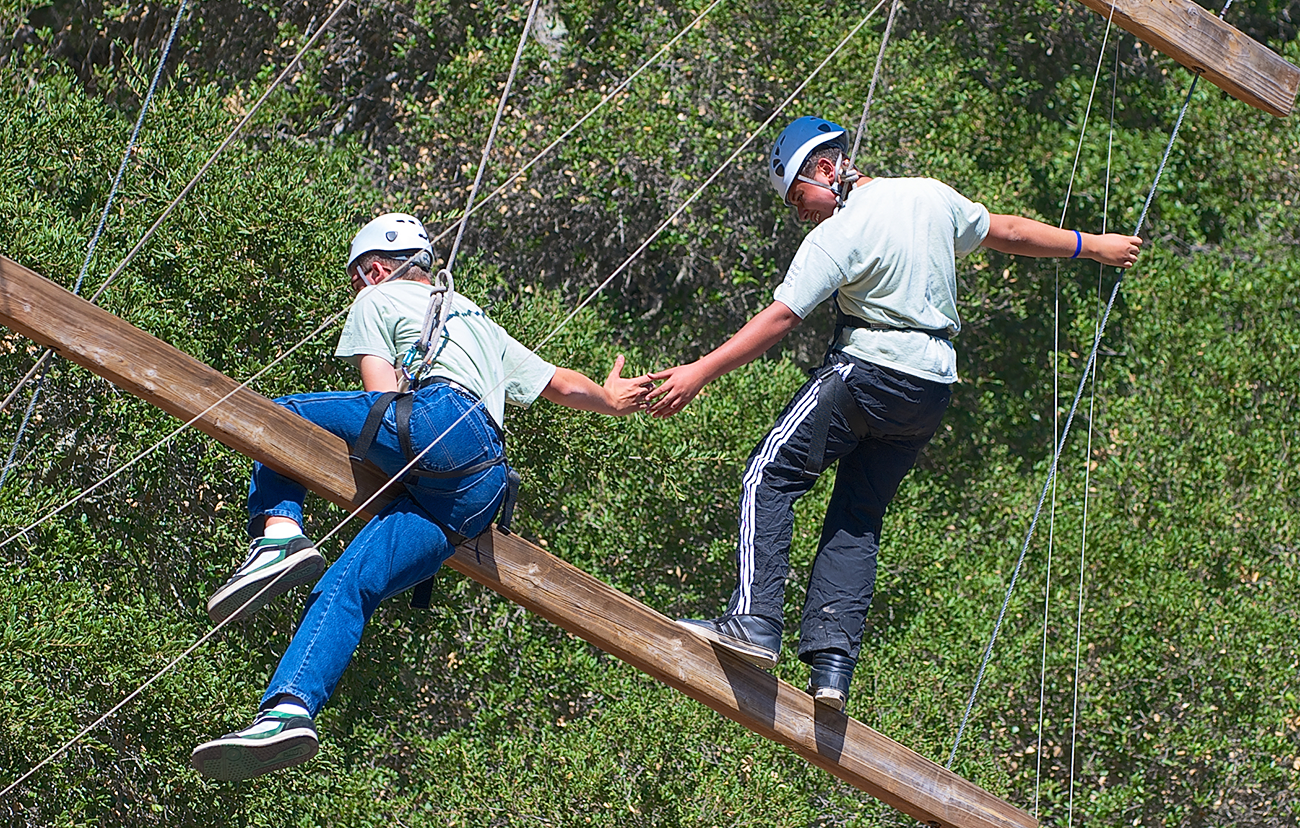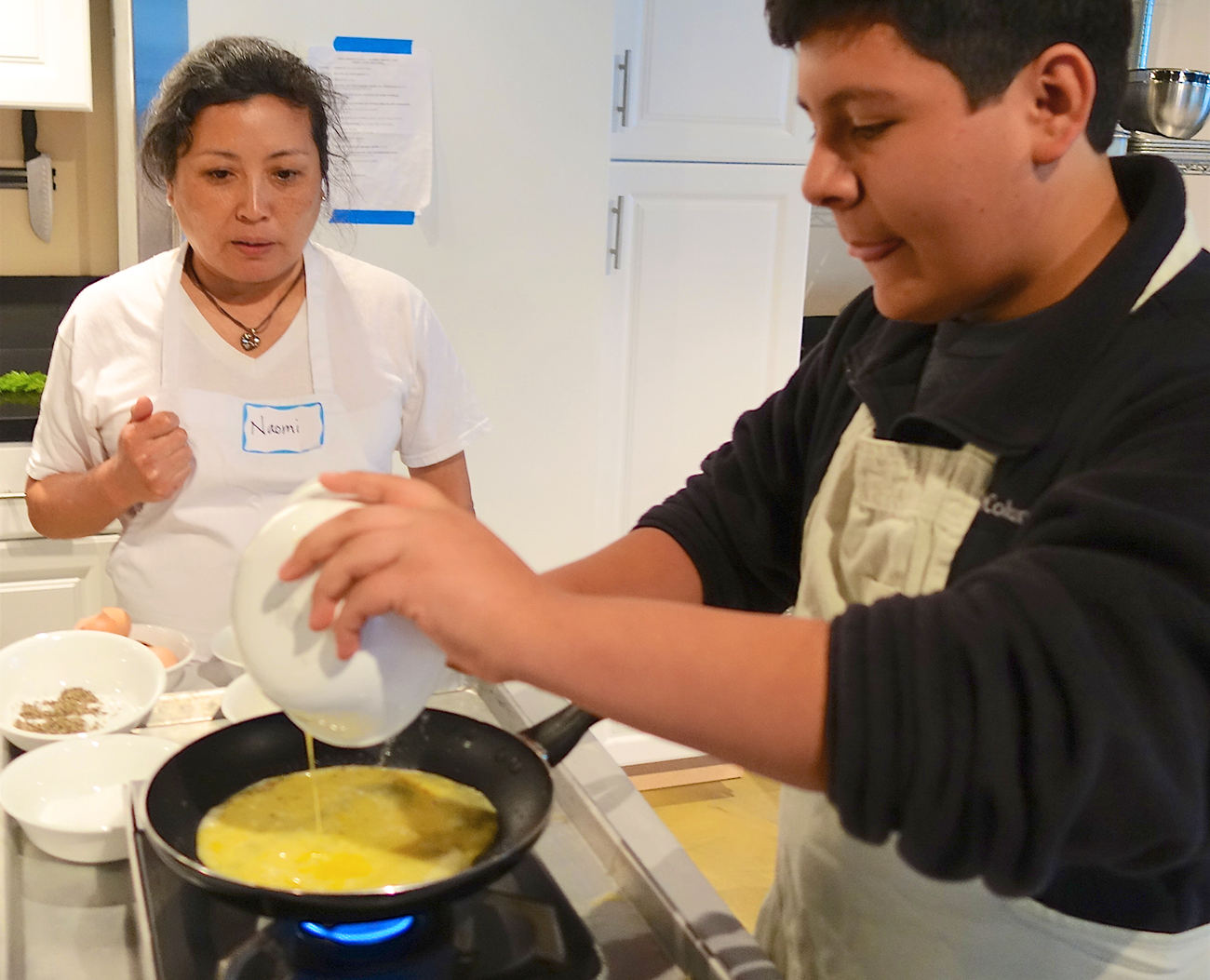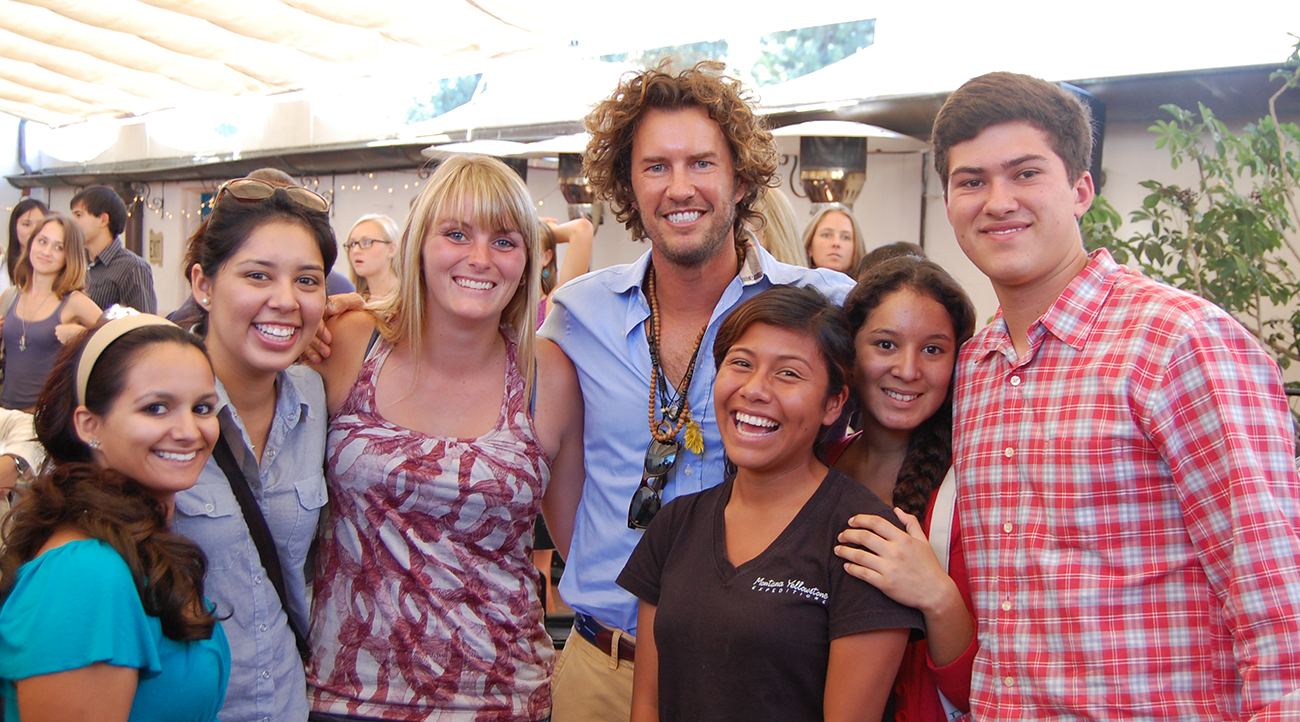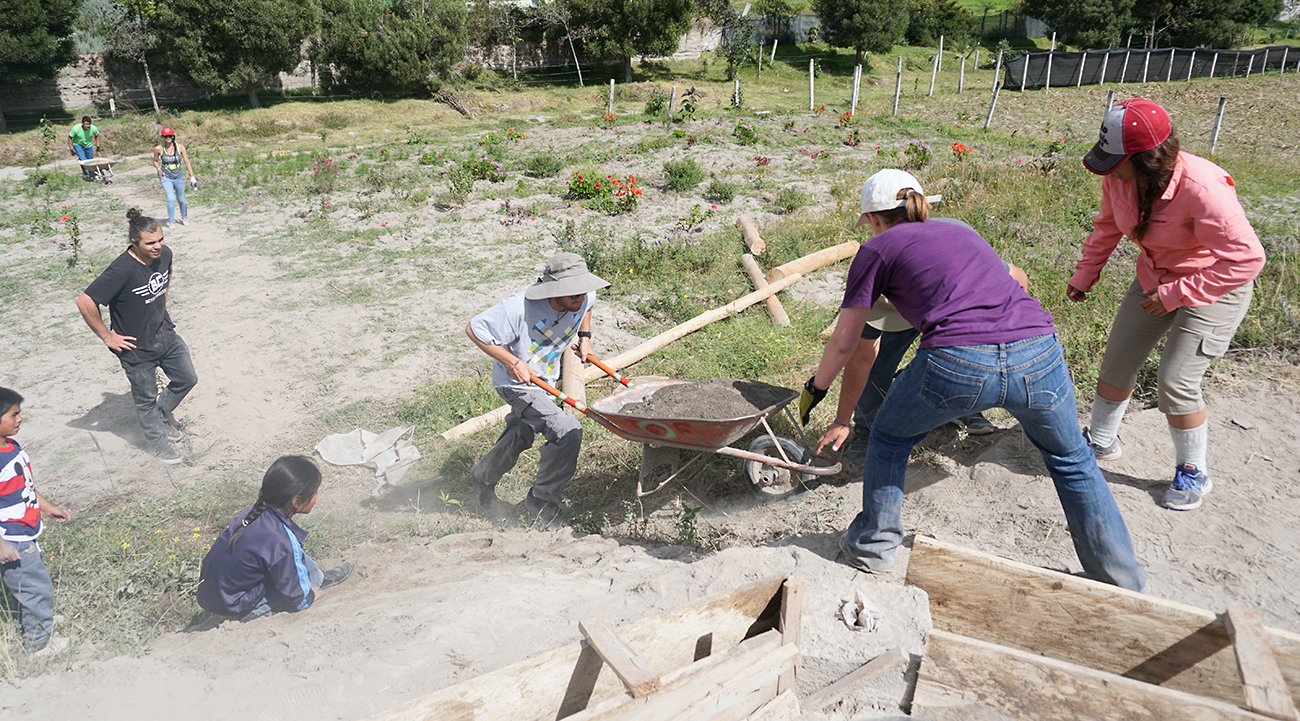Mentoring
Caring AND Expertise during a Challenging Transition
It’s well known that students benefit from regular interaction with non-parental adults. In the case of REACH, we strive to provide not just additional caring adults, but a collection of subject matter experts and mentors that can effectively guide students to successful adulthood.

Challenge
FILLING GAPS IN A STUDENT’S SUPPORT
The transition from high school to post-secondary education and adult success often proves a chasm too wide for students from low-income families, particularly when they will be the first college students in the family. Even when surrounded by caring kin and friends, students also need the assistance of trusted subject matter experts as they learn to take on the responsibilities of adulthood.

APPROACH
TRUST TAKES TIME
REACH front-loaded its original programming with extensive outdoor excursions and frequent workshops during the first two years, while students were still in high school. After high school, the program used Zoom videoconferencing and computer-sharing technology to keep the group together and to offer regular one-on-one meetings.
By the time they were in college, the trust established during the first two years empowered students to share what was really going on in their lives, and improved the mentors’ ability to influence students to take advantage of new resources. Better still, they trusted us to nag them about things like deadlines. Unlike helicopter parents micromanaging every aspect of their student’s life, we were more like bungee-jumpers, dropping into view periodically to say, “We see, we care, and we have an idea on how to solve that problem. Your tuition payments have already gone to the (campus therapist/writing center/engineering club), so why not check it out?”
According to the Social Policy Research Associates surveys, 100% of our students felt there was at least one person at REACH to whom they could speak freely about anything, from abusive relationships to roommates selling drugs to sexual identity questions. Being able to talk about such things with a trusted adult reduces stress and the poor decisions that often accompany stress, lowering the risk of dropout/burnout.

Adaptations
VIRTUAL MEETINGS BUILT ON REAL RELATIONSHIPS
When our first cohort went to college, we weren’t sure if they would come back to us. The common wisdom is that when a student leaves high school, he or she doesn’t want to associate with high school things anymore. We were very intentional with our messaging, ensuring they understood that the program would grow with them as they faced new challenges, responsibilities and freedom. We were both relieved and surprised to find that students reached out for encouragement and advice even more than they did in high school.
For many young people this is the first major transition in their lives, and they are expected to manage it well, despite the loss of their support network. Once they got to college we had two contact points each month via Zoom videoconferencing software. One session was with a group of 6-10 students, where we discussed common challenges and solutions in the format of a facilitated discussion among peers. The other session was a one-on-one, to discuss how the student was doing, and how to find individualized resources at his or her school.
Student need for support peaked at the end of high school and beginning of college. Having provided intensive assistance during the first three years, we focused the final year on building new networks – discovering professors, counselors, clubs and internship experiences to support students in their continuing personal and professional growth.

Impact
GETTING TO COLLEGE AND GETTING THROUGH COLLEGE
Despite assistance from their counselors and the availability of numerous college resources, 24% of low-income high school graduates with plans to attend college never even show up. Small steps, such as deadline reminders sent via text messaging, can increase first day attendance, but real relationships can accomplish much more. Among students in the first two REACH cohorts, 53% enrolled in 4-year colleges and another 44% attended two-year colleges (of which, 26% from the 2012 cohort are scheduled to transfer to 4-year institutions). 85% of REACH students stuck with the program for the entire four years, and 100% of those students are on track to complete their college or military post-secondary education.

Continuity
A NEW GENERATION OF MENTORS
Unlike other programs launched by the Orfalea Foundation, REACH is less a vehicle for systemic change than an ongoing exploration of the timing of mentorship. After the program concludes, our students bring to their communities everything they have learned about teamwork, leadership, problem-solving, and lifelong learning. We hope that other organizations and philanthropists will build on this success and continue to experiment with long-term mentorship during the transition to adulthood. Based on what we learned from these first two cohorts, as of 2018 REACH will compress its curriculum to 2.5 years, centered on the summer between high school and college. We look forward to reporting on our progress.




